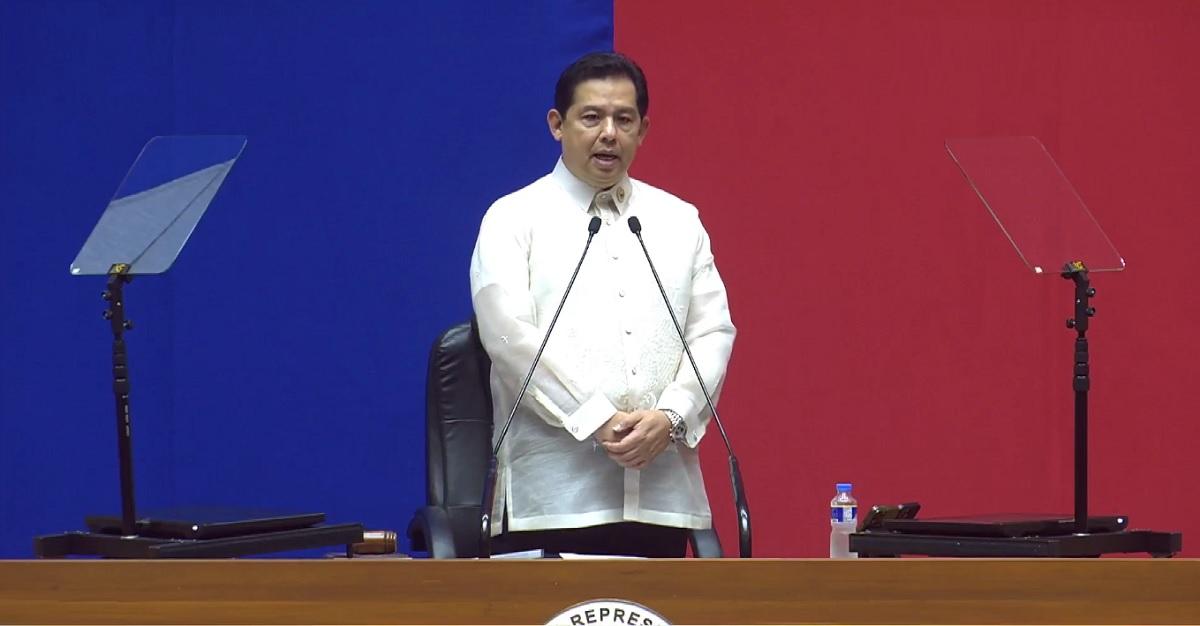Filtered by: Topstories
Speaker Martin Romualdez has expressed full support for the Palace-initiated Independent Commission on Infrastructure which will probe into the government’s flood control projects, saying the House will not be a haven for corrupt officials.
“I fully support President Ferdinand R. Marcos Jr.’s statement that no one is exempt from accountability. The House of Representatives has already embraced this principle in our work to uphold transparency and restore public trust,” Romualdez said.
Likewise, Romualdez said the President has also reminded lawmakers conducting investigations that such scrutiny is not a platform for name-dropping and reckless accusations.
“I share this view. Investigations must be anchored on facts and evidence, not on rumor, innuendo, or hearsay. Only by focusing on the truth can we ensure both accountability and fairness,” Romualdez said.
“The House will not be a refuge for wrongdoing. Not even its own Members will be shielded if wrongdoing is proven. We will ensure that the process is fair, fact-based, and guided by the rule of law. Nothing will be kept, no one will be protected and most of all—it will not deviate from public interest. The House won’t be a refuge for wrongdoing,” Romualdez added.
Romualdez said that the Independent Commission for Infrastructure (ICI) is an opportunity to cleanse the system, and the House is committed to cooperate with ICI’s probe.
Still, Romualdez said the House’s commitment to probe the flood control projects in aid of legislation and pursue accountability remains intact.
“Our committees have already begun reviewing procurement safeguards and monitoring project implementation to plug loopholes and strengthen oversight. This issue is bigger than personalities,” he said.
ICI creation, members
The ICI was established via the President’s issuance almost three months since the Chief Executive vowed a crackdown on personalities, including politicians, making money off the flood control projects of the government.
Since then, the President has named a former Supreme Court Associate Justice as ICI chairperson.
Other ICI members include: a former Public Works Secretary and a country managing partner at an auditing firm.
A city mayor was named as the body’s special adviser.
Palace
The term “palace” refers to a grand residence, typically for royalty or high-ranking dignitaries. Historically, palaces served as both private homes and centers of administration and power, with famous examples like Versailles or the Forbidden City symbolizing the absolute authority of their rulers. Their architecture and opulent design were intended to display wealth, prestige, and cultural influence.
House of Representatives
The House of Representatives is the lower chamber of the United States Congress, established by the Constitution in 1789. It is composed of representatives elected from congressional districts across the country, with representation based on population. Its primary responsibilities include initiating revenue bills, impeaching federal officials, and electing the President in the case of an electoral college tie.
Independent Commission for Infrastructure
The Independent Commission for Infrastructure is not a specific historical or cultural site, but rather a type of government or public body. These commissions are typically established to oversee and manage large-scale public infrastructure projects, such as transportation networks, energy systems, or utilities. Their history is generally tied to modern governance efforts aimed at ensuring transparent, efficient, and non-political development of a nation’s critical infrastructure.
Supreme Court
The Supreme Court is the highest judicial body in the United States, established in 1789 by Article III of the U.S. Constitution. It has ultimate appellate jurisdiction over all federal and state court cases involving federal law and the power of judicial review, famously established by the 1803 case Marbury v. Madison. The Court, composed of nine justices, plays a fundamental role in interpreting the Constitution and shaping American law and society.
Public Works
“Public Works” refers to government-funded infrastructure projects like roads, bridges, and water systems that serve the public good. Historically, major public works programs, such as those during the New Deal era in the United States, were implemented to provide employment and stimulate economic growth during times of depression. These projects are foundational to a community’s development, connectivity, and overall quality of life.






